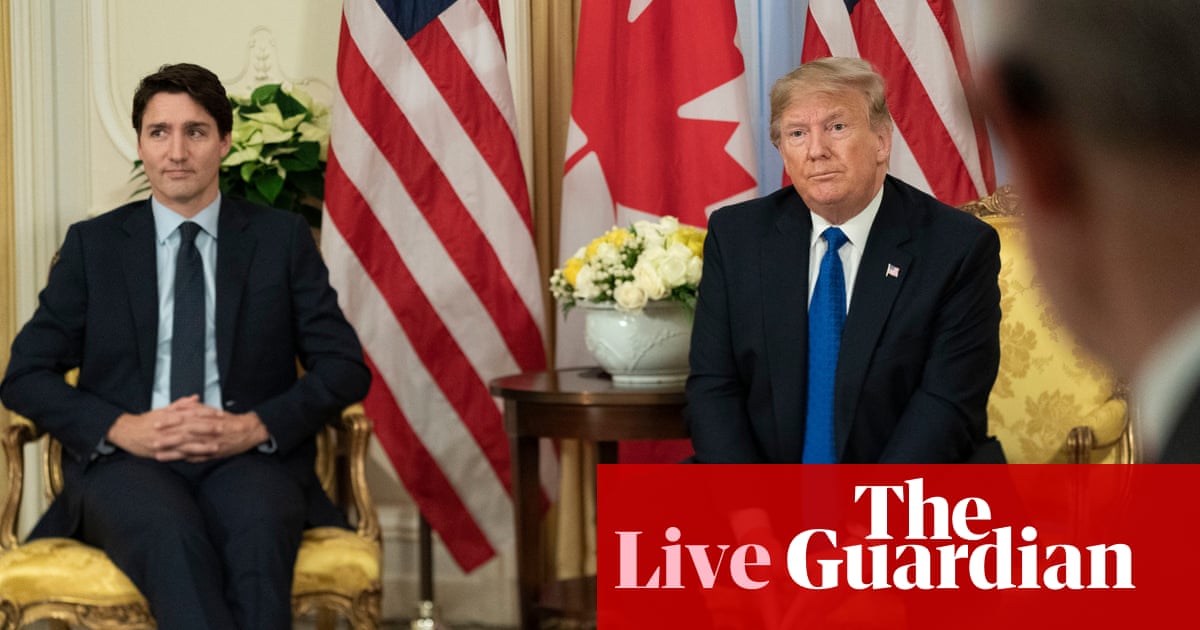
Joe Biden said he told Donald Trump not to follow through on his campaign vows to pursue retribution against his political adversaries once he returns to the White House.
Talking to USA Today, Biden said he proffered the advice when he hosted Trump at the White House in November after his election victory over Kamala Harris. The president-elect did not respond directly but did not reject the suggestion, Biden said.
“I was very straightforward with Trump when he got elected,” Biden told USA Today in the hour-long interview, one of the few one-on-one exchanges he has given in his four-year term. “I tried to make it clear that there was no need, and it was counterintuitive for his interest to go back and try to settle scores.”
Asked whether Trump had answered, Biden acknowledged that he had not, but added: “But he didn’t say: ‘No, I’m going to … ,’ you know. He didn’t reinforce it. He just basically listened.”
Biden was responding to a question about whether he would grant pre-emptive presidential pardons to figures such as Liz Cheney, the Republican former representative who co-chaired the bipartisan committee investigating the 6 January 2021 insurrection at the US Capitol, and Anthony Fauci, the former leading national public health official who spearheaded the country’s response to Covid-19.
The president said he was considering doing so before leaving office in less than two weeks’ time, but that his final decision depended on whom Trump appointed to certain positions.
Trump has repeatedly said that Cheney should face a military tribunal for her role on the House select committee that investigated the January 6 attack on the US Capitol. His supporters have also called for a prosecution against Fauci, who advocated mandates on mask-wearing during the pandemic.
Biden also revealed that Trump – in contrast with his fulminating public criticism of the Democrat’s presidential record – had been complimentary when the two men met.
“He was very complimentary about some of the economic things I had done … He thought I was leaving with a good record,” Biden said.
Publicly, Trump has labelled Biden’s presidency a “disaster” and called him “the worst president in American history”.
In other remarks, Biden said he believed he could have beaten Trump in November’s election if he had stayed in the race rather than stepped aside for Harris – which he did after a dire debate performance last June intensified concerns about his age and acuity and triggered a fall in his poll standing.
“It’s presumptuous to say that, but I think yes, based on the polling,” he said. But he also admitted that at age 82 he might not have had the vigour to serve another four years as president.
“I also wasn’t looking to be president when I was 85 years old, 86 years old,” he said. “And so I did talk about passing the baton [before his 2020 victory over Trump]. But I don’t know. So far, so good. But who knows what I’m going to be when I’m 86 years old?”
Biden’s belief that he could have won the election has surfaced previously, in anonymous background briefings attributed to close aides.
This appeared to be the first time he had publicly made the case.
He attributed Harris’s defeat to a backlash from voters against incumbent governments that he said had taken place internationally.
“I look at this election, not our election alone, but every major election in the world – and almost every government lost power across the world … almost every democracy out there ‘lost’ this time,” he said. “I think the [Covid] pandemic has had a profound impact … on people’s attitudes, their sense of optimism. Over a million people look across the kitchen table and see an empty chair.”
Biden claimed credit for “re-establishing” the US’s international alliances and warned of the impact of the world getting “smaller and smaller” – with events in one country having profound effects in far-flung areas.
Referring to US support for Ukraine in its war resisting Russia’s invasion almost three years ago, he invoked the support of Henry Kissinger, the late American statesman, who died in 2023.
“About 10 days before he died, Kissinger contacted me and he said … ‘Not since Napoleon has Europe not looked over its shoulder at Moscow with dread, until now,’” Biden said.
He also justified his much criticised decision to pardon his son Hunter, who had been convicted of tax evasion and charges of illegal purchase of a firearm. Although he had previously pledged not to pardon him, Biden said a change of heart had been justified because Hunter had paid his back taxes, albeit late, and had fought to overcome addiction issues.
“He’s doing great, God love him,” Biden said. “He’s been straight and sober. He’s involved, he’s written a book about it openly. He’s a very bright guy, very high IQ. He’s very well-educated. Georgetown, Yale, and that kind of thing, smart as hell.”










 English (US)
English (US)